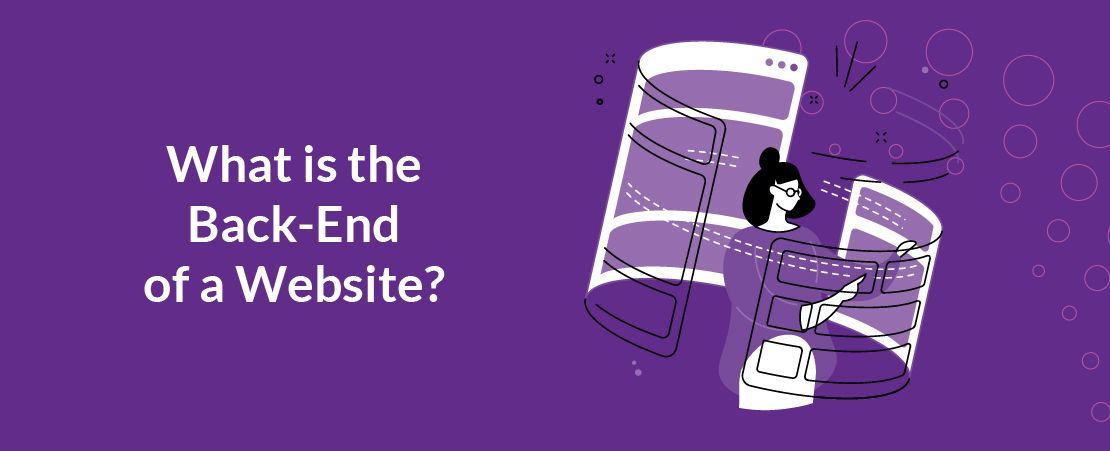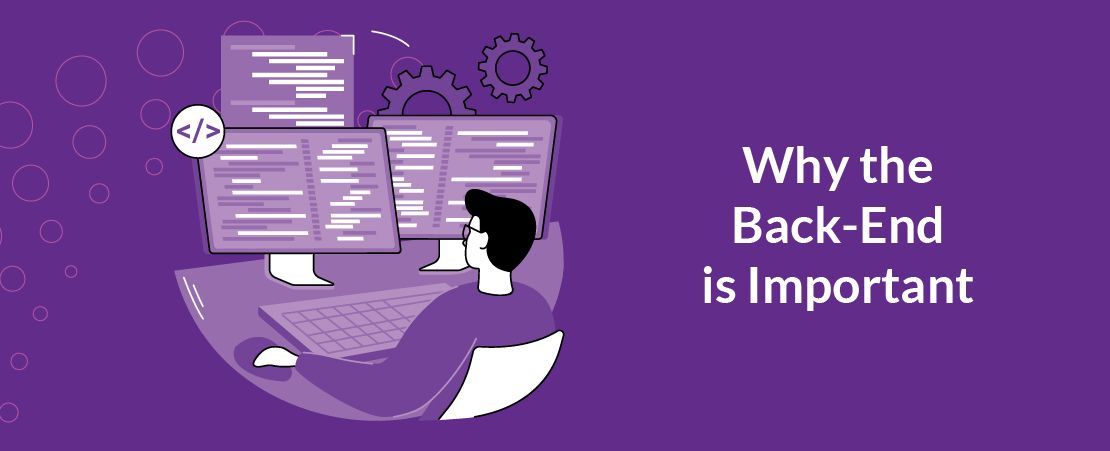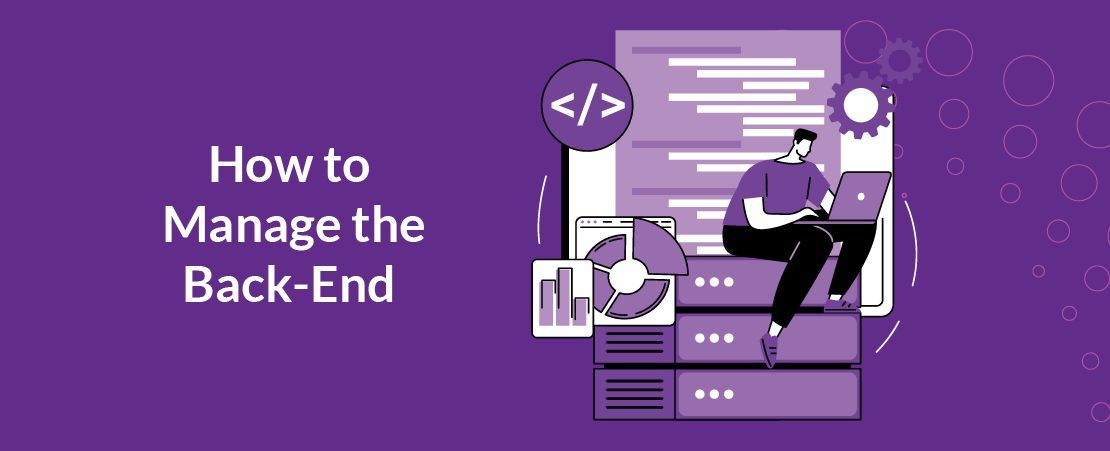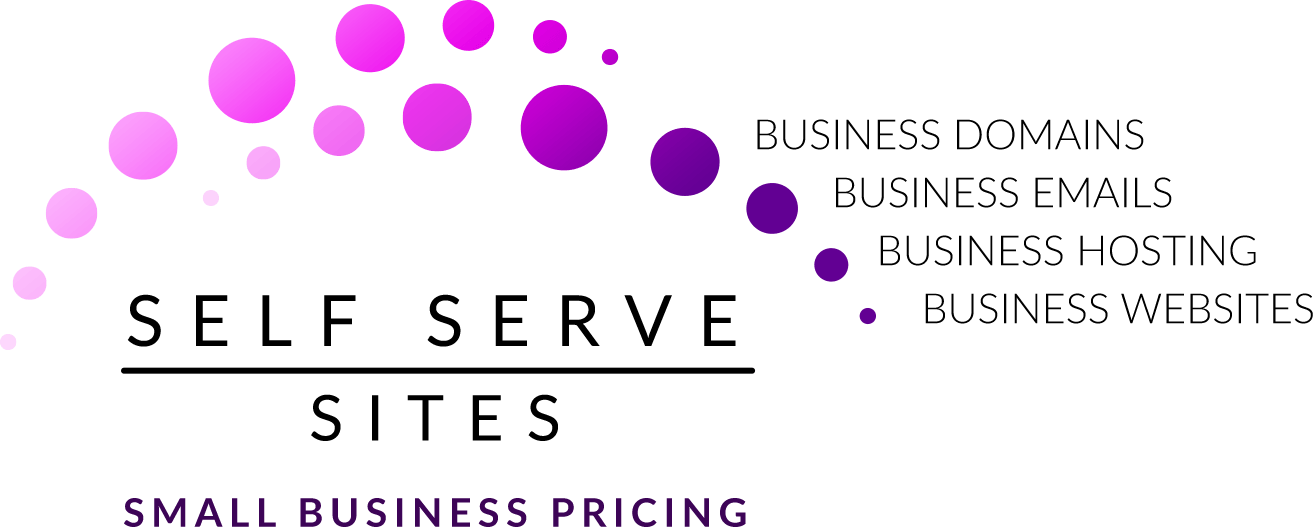Understanding the Back-End of Your Small Business Website
When it comes to building and maintaining a successful Website, the back-end plays a crucial role. While the front-end is what users see and interact with, the back-end is the powerhouse behind the scenes that makes everything function smoothly.
For Small Businesses, understanding the back-end is essential for ensuring a seamless user experience, maintaining security, and supporting scalability.
For those of you who aren’t as up to date with your tech knowledge, this blog is for you! We will explain what the back-end is, why it’s important, and how Small Businesses can effectively manage it.
So keep reading and let your knowledge of your Website’s backend flourish!

What is the Back-End of a Website?
The back-end of a Website refers to the server-side components that process data and serve it to the front-end. It consists of three main parts: the server, the database, and the application.
Server:
The server is a powerful computer that stores Website files and delivers them to users' browsers upon request. It handles all incoming and outgoing data and ensures the Website runs efficiently.
Database:
The database stores all the information that a Website needs to function, such as user accounts, product details, content, and transaction records.
Application:
The application refers to the server-side code that connects the server and database, processes requests, and sends the appropriate data to the front-end.

Why the Back-End is Important
Data Management: The back-end manages and processes data efficiently, ensuring that user information, product details, and other critical data are stored securely and can be retrieved quickly. This is essential for functionalities such as user logins, e-commerce transactions, and content management.
Performance and Speed: A well-optimised back-end
ensures that a Website loads quickly and can handle multiple requests simultaneously. Slow or unresponsive Websites can lead to high bounce rates and lost business opportunities.
Security: The back-end plays a pivotal role in maintaining the security of a Website. It involves
implementing measures such as data encryption, secure authentication, and regular updates to protect against cyber threats like hacking and data breaches.
Scalability: As a Small Business grows, its
Website needs to handle increased traffic and data loads. A robust back-end architecture allows for scalability, ensuring that the Website can expand and adapt to the business’s changing needs.
Customisation and Integration: The back-end
allows for extensive customisation and integration with other tools and platforms. This includes adding new features, integrating with third-party services (such as payment gateways or CRM systems), and tailoring the Website to meet specific business requirements.

How to Manage the Back-End
Implement Security Best Practices: Ensure that your back-end is secure by using secure coding practices, implementing HTTPS, regularly updating software, and performing security audits. Utilise firewalls and intrusion detection systems to protect your server from malicious attacks.
Optimise Performance: Regularly monitor and optimise the performance of your back-end. This includes
optimising database queries, using caching mechanisms, and compressing files to reduce load times. Tools like New Relic or Google Analytics can help track performance metrics.
Plan for Scalability:
Design your back-end architecture with scalability in mind. This can involve using cloud services, implementing load balancing, and designing your database to handle growth. Services like AWS, Azure, and Google Cloud offer scalable solutions for Small Businesses.
Regular Maintenance: Regularly
update and maintain your back-end to ensure it remains secure and efficient. This includes applying patches, updating dependencies, and cleaning up unused code or data. Schedule routine checks to keep everything running smoothly.
Backup Data: Regularly back up your data to prevent loss in case of server failures or cyber attacks. Automated backup solutions
can help ensure that your data is safely stored and can be quickly restored if needed.
The back-end of a Website is the unsung hero that ensures everything runs smoothly and securely. For Small Businesses, a strong back-end is essential for managing data, ensuring performance, maintaining security, supporting scalability, and enabling customisation.
By choosing implementing security best practices, optimising performance, planning for scalability, performing regular maintenance, and backing up data, Small Businesses can create a robust back-end that supports their growth and success!










